 Janus Head Janus Head
10.2
Special Issue
J.H. van den Berg

Beyond Time
New & Selected Work
1977 - 2007
Robert Gibbons
 The Age of Briggs & Stratton The Age of Briggs & Stratton
Peter Culley
|
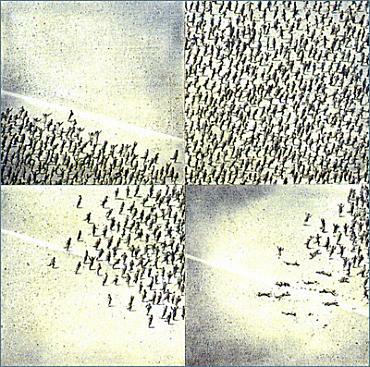
"Cuatro fases en torno a una prohibicion"
(1966)
Juan Genovés
b. May 30, 1930
_______________________
Manipulation - How Markets Really Work
Steve Lendman
Wall Street's mantra is that markets move randomly and reflect the collective wisdom of investors. The truth is quite opposite. The government's visible hand and insiders control markets and manipulate them up or down for profit - all of them, including stocks, bonds, commodities and currencies.
It's financial fraud or what former high-level Wall Street insider and former Assistant HUD Secretary Catherine Austin Fitts calls "pump and dump," defined as "artificially inflating the price of a stock or other security through promotion, in order to sell at the inflated price," then profit more on the downside by short-selling. "This practice is illegal under securities law, yet it is particularly common," and in today's volatile markets likely ongoing daily.
Why? Because the profits are enormous, in good and bad times, and when carried to extremes like now, Fitts calls it "pump(ing) and dump(ing) of the entire American economy," duping the public, fleecing trillions from them, and it's more than just "a process designed to wipe out the middle class. This is genocide (by other means) - a much more subtle and lethal version than ever before perpetrated by the scoundrels of our history texts."
Fitts explains that much more than market manipulation goes on. She describes a "financial coup d'etat, including fraudulent housing (and other bubbles), pump and dump schemes, naked short selling, precious metals price suppression, and active intervention in the markets by the government and central bank" along with insiders. It's a government-business partnership for enormous profits through "legislation, contracts, regulation (or lack of it), financing, (and) subsidies." More still overall by rigging the game for the powerful, while at the same time harming the public so cleverly that few understand what's happening....(more)
_______________________
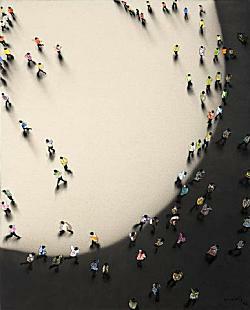
Juan Genovés
1 2
_______________________
Thrombosis in the Veins of Petroleum
Taha Muhammad Ali
from So What: New and Selected poems, 1971-2005, translated by Peter Cole, Yahya Hijazi, and Gabriel Levin
When I was a child
I fell into the abyss
but didn’t die;
I drowned in the pond
when I was young,
but did not die;
and now, God help us—
one of my habits is running
into battalions of land mines
along the border,
as my songs
and the days of my youth
are dispersed:
here a flower,
there a scream;
and yet,
I do not die!
...(more)
A Measure of SplendorVictoria Chang reviews Taha Muhammad Ali's So What boston review
Taha Muhammad Ali at Poetry International Web _______________________
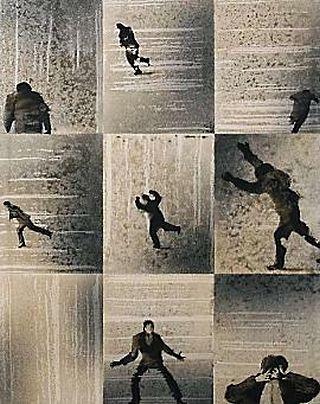
Hombre Solo
Juan Genovés
1967
_______________________
Post-Operative Complications Following the Extraction of Memory
Taha Muhammad Ali
Translated by Peter Cole, Yahya Hijazi and Gabriel Levin
In an ancient, gypsy
dictionary of dreams
are explanations of my name
and numerous
interpretations of all I’ll write.
What horror comes across me
when I come across myself
in such a dictionary!
But there I am:
a camel fleeing the slaughterhouses,
galloping toward the East,
pursued by processions
of knives and assessors,
women wielding
mortar and pestle for chop meat!
...(more)
via John Latta
Isola di Rifiuti
_______________________
The philosopher’s fear of alterity
Levinas, Europe and humanities ‘without Sacred History’
Andrew McGettigan
radical philosophy 140, 15 - 24
pdf here
_______________________
The Ethics Of Ambiguity
Simone de Beauvoir
translated from the French by Bernard Frechtman
_______________________
Special Signs (Joseph Cornell)
Tom Clark
Vanitas Magazine
A child's things
speak of the shock
enigma world
forever
star charts
movie actresses
ballerinas
soap-bubble sets
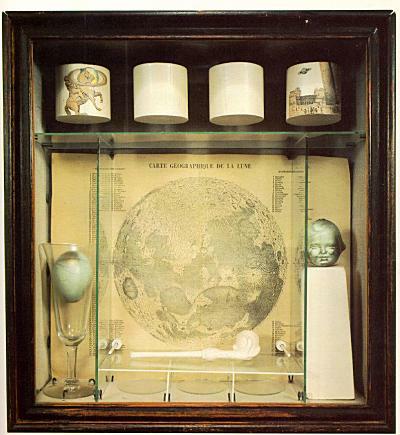
marbles
toy birds
seen though
the magic prism
a child's vision
the mind
assembles
a cosmology
a bricolage
of bits of this
and bits of that
maps
pieces of cloth
illustrations
in encyclopedias
...(more)
_______________________
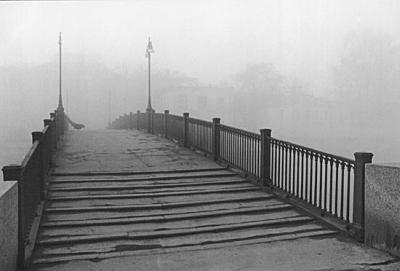
Alexander Kitaev

Museum Spaces
Shai Kremer via gmtPlus9 (-15)
_______________________
Canadian Primal
Five poet-thinkers redefine our relationship to nature
Mark Dickinson
walrus
There’s an ecological renaissance under way in Canada right now, but chances are you haven’t heard of it, because it is flowering in one of the most ignored and feared regions of the high arts: poetry. Its chief proponents — Robert Bringhurst, Dennis Lee, Tim Lilburn, Don McKay, and Jan Zwicky, all major Canadian poets — have together earned around a dozen nominations for Governor General’s Literary Awards, in addition to numerous other accolades, such as the prestigious Griffin Poetry Prize. As rewarding as their work is, it has yet to be discovered by a wider audience.
These poets ask foundational questions about how we perceive and think and relate to non-human nature, questions that encourage us to look beyond the language of sustainability and reconsider the basic facts of our very existence. Instead of Northrop Frye’s iconic “Where is here?” they ask, “What is here?” and “How to be here?” To them, a livable future depends on more than simply taking the blue box to the curb; it means tackling the difficult work of crawling out from under a constricting account of reality.
As poets, they remain hard to categorize or classify. They aren’t a school of poetry, or a movement conforming to a particular aesthetic stance. There is no manifesto or program, no chief ideologue, no overarching theory. Their poetry isn’t “ecological” because they refer to sharp-shinned hawks or bird’s nest lichen. Complicating matters, they continually refer to a number of disparate philosophical traditions that are largely forgotten in the West — presocratic Greek thought, the wisdom of Taoist and Buddhist Asia, native North American oral literature, medieval Christian mysticism — along with classical musicians, continental philosophers, and even Bob Dylan. Reading them is, in short, akin to learning Chinese: deeper understanding requires knowledge of a web of cultural references and intellectual ancestors.
What brings them together?...(more)
_______________________
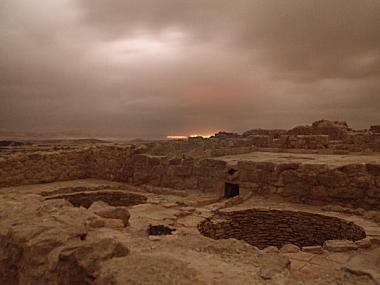
Fallen Empires
Shai Kremer
_______________________
The Long Goodbye? The Book Business and its Woes
Elisabeth Sifton
_______________________
Trying the Kindle
Peggy Nelson
Literary Kicks
Overall I find the Kindle to be more of an icon linking back to the book, than a full-blown substitute: if I liked something, I wanted the ‘real’ object to own, afterwards. As if I had to ‘bookend’ the experience with a real book! Which is probably good news for the publishing industry, if representative. I still imagine there’s something “alive” about a book on the shelf, which is paradoxical because the *real life of a book is fully virtual. Language has been flowing in and out of various forms for thousands of years, from speaking to pictures to writing to — code? And beyond, inevitably.
However, there is something significant about edges. A codex satisfies the analog part of our nature, both the real periphery of our vision (both pages at once) and the virtual periphery of our perception (”flipping through it” to any page, what’s next to it on the shelf, etc.). A somewhat similar experience even holds with websites - with the Kindle, the layout is replaced by a list. Most of the ‘page elements’ are there, eventually, but in *sequence, not in simultaneity. And with sequencing comes a denial of the virtual periphery: you can scroll or click through, but the page you were looking at is cleanly gone, and the pages you might see next do not yet exist. You can’t hold on to them, except via trust in (Random Access) Memory. When we lose the edges we lose the analogies, the associations, the as-yet unknown possibility spaces. When we target too closely the known, we lose the jumping-off point for all else....(more)
_______________________
Kindle: The Philosophy of the Turtle
Shelley Powers
The Frugal Algorithm
_______________________

Destroyed UN base
Kuneitra, Stairs
Israel/Syria Border
2005
Shai Kremer
_______________________
my uncut interview with badiou
infinite thØught
I wonder if you have any general comments about why the ‘idea of communism’ might be so important.
AB: It’s a true question because ‘communism’ was really a dead word for a long time. The reason was, naturally, the complete failure of the ‘great experiments’ of the last century concerning communist parties, communist states and so on. There has been a sort of collapse of all that, without any immediate kind of positive lesson because it was really an exhaustion. It has not really an insurrection against that kind of state but maybe a kind of illness and finally a death without any positive construction afterwards. All these countries are today capitalist in one way or another. So after that it was really an obscure word and so we have to interpret it in a new situation, this world, because it is once, possibly, it is an important world in its philosophical and political determination.
I think that there are probably two forms of explanation of this fact – a thousand people in a room in London to hear some philosophers talking about communism! It would have been impossible ten years ago, so we have to give some explanations. The first one is that after the victory of global capitalism, there have been some deceptions, something wrong. There hasn’t been a new peaceful world. We have huge inequality. We have no unity of the world, but a rich western world and another world which is not at the same level at all. We have also inside the rich world itself very strong inequalities, and more and more. We have wars everywhere in the world: Africa, Iraq. And we have something very important I think, a sort of confusing uncertainty. People cannot really know where they are going. So the first explanation: we are not in simply a victorious capitalist world. We are practically 20 years after this apparent victory and the world is not a very good one. So this is the objective explanation but there is also a subjective one.
We can say simply that global capitalism is not a vision of the future. It’s only a sort of continuity of itself. Capitalism is only a repetition. A repetition of the same world, the same necessity with many features of the repetition, the circulation of money, the generalities of communications, and so on. So there is something in that world which is also new and always the same. And I think it’s the profound experience of all people today. There are new objects, new cars, new phones, and so on. But in fact the experience of the world is the same. Is it possible to live in that sort of world for a long time? During a short time it’s always possible, we have some objects, some merchandise, we have the market, and so on. But in the long-run there is no vision of the future. There is the feeling of pure repetition. My philosophical conviction is that people cannot accept that sort of world for a long sequence. The subjective sequence which is accepting all that – there is no other possibility, the collapse of communism, there is no other possibility. It is why today we have a curiosity, a feeling concerning other possibilities. Not only communism, but religious possibilities, nihilistic possibilities too – no future – and pure immediate existence. But new forms of politics. The world today all that, especially young people, have a new interest have a new interest in this old word....(more)
_______________________
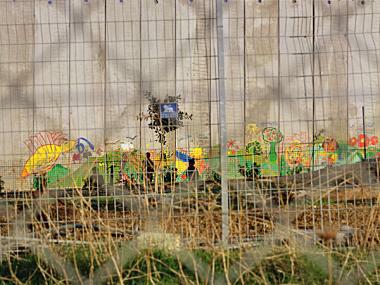
between the Separation Wall
and security fencing
Bidya, 2005
Infected Landscape
Shai Kremer
_______________________
Skips & Charms against Recession
Alan Halsey
Blackbox Manifold
white persimmon
pianissimo
without permission
~~
‘on our which modernity depends’
and if whether yours or mine it merits
any more than a word defends
or any other language inherits
~~
(....)
The author’s other works
are too numerous and scarce
to be listed here
but he sometimes remarked that
hum when erased leaves an
as well as bling and bled
not to mention ility and iliation.
He also often wondered what
R had done
to be heaped with rocks
refuse rubbish ravage ruins
& Resurrection.
~~
it’s not as if meaning means
the imaginary something
something like ‘menagerie’
a hinge of exchange or henge
that hangs in the air and the air
as if obliged hangs itself
...(more)
Blackbox Manifold
edited by Adam Piette and Alex Houen
Sheffield University's School of English
_______________________
The trouble with being Cioran
Sam Munson reviews Searching for Cioran by Ilinca Zarifopol-Johnston
The Romanian philosopher EM Cioran remains one of the most difficult modern writers to come to terms with. With an aphoristic, charged, almost violent style, and a portfolio of subjects well outside our contemporary philosophical mainstream – despair, ecstasy, boredom, insanity, suicide, crime, illness, nothingness, music, sex, entropy, all considered as raw and immediate experiences, not as matters for academic investigation – he can seem like an atavist, a soul in permanent unarmed combat with the mores of enlightened society. “Annihilating,” he wrote in The Trouble with Being Born, “flatters something obscure, something original in us. It is not by erecting but by pulverising that we may divine the secret satisfactions of a god. Whence the lure of destruction and the illusions it provokes among the frenzied of any era.”
Sentiments of this kind – admiring aperçus on destabilisation and destruction – are looked at askance these days, no matter how felicitous their expression. But the temptation to write about the mind that produced them is as strong as the difficulties surrounding such a task are thorny and serious. Cioran’s idiosyncratic and allusive style and the lack of obvious socio-historical references in most of his books present a formidable challenge to any scholar. The careful control he exerted over his own biography – re-shading facts here, altering emphasis there, rebuking his younger self while still espousing the principles of his youth, above all retaining an exquisite consciousness of himself as a potential biographical subject – renders him at least partially resistant to the scrutiny of a conventional researcher.(....)
To read Cioran is to be reminded of another strain in Western culture, one that rejects the progressive ethic of political compromise and social improvement. It is customary, now, to refer to such eruptive and wild-hearted modes of thought, particularly where they coexist with a penetrating intellect, acute criticisms of the liberal political order, and high talent for prose, as “dangerous” – to demean with this label anything touched by the slightest breath of anti-modern sentiment. Cioran’s work belongs to the category of the “dangerous”. And the word applies as both a term of opprobrium and a term of the very highest praise: After all, if philosophy is not dangerous, what purpose can it have?
If we take nothing else from the work of Cioran, let it be that question – asked without fear. ...(more)
via Ron Silliman
_______________________

photo - mw

On a Finnish Trawler
1931
László Moholy-Nagy
George Eastman House
71 Selected Images
_______________________
A Small History of Photography
Walter Benjamin
The camera is getting smaller and smaller, ever readier to capture fleeting and secret moments whose images paralyze the associative mechanisms in the beholder. This is where the caption comes in, whereby photography turns all life's relationships into literature; and without which all constructivist photography must remain arrested in the approximate. Not for nothing have [Eugène] Atget's photographs been likened to the scene of a crime. But is not every square inch of our cities the scene of a crime? Every passerby a culprit? Is it not the task of the photographer -- descendant of the augurs and haruspices -- to reveal guilt and to point out the guilty in his pictures? "The illiteracy of the future," someone* has said, "will be ignorance not of reading or writing, but of photography." But must not a photographer who cannot read his own pictures be no less counted as illiterate? .....................................................
* the "someone" was László Moholy-Nagy according to this footnote:
In Focus: Laszlo Moholy-Nagy
Nancy Roth
Afterimage, July-August, 1997
(5.) The famous phrase, "The illiterate of the future will be ignorant of the pen and the camera alike" is Moholy's. It has gained its considerable currency mainly by way of its paraphrasing --without attribution -- in Walter Benjamin's celebrated "Kunswerk" essay of 1936. Moholy's observation, originally in English, was written in 1932 and first published in "A New Instrument of Vision," Telehor (Brno) I, 1-2, Feb. 28 1936... _______________________

Pont Transbordeau, Marseille
1929
László Moholy-Nagy
ca.1895-1946 The Moholy-Nagy Foundation
_______________________
Discontinuous Visuality —
Brakhage’s ‘just seeing’, and background temporality in contemporary poetics
Stephen Mooney
Jacket 37
Stan Brakhage, as one of the foremost avant-garde filmmakers of the 20th Century (indeed right up to his death in 2003), has offered viewers of his films an expanded sense of what the camera can achieve. His influential development of theories of ‘hypnogogic vision’ and ‘moving visual thinking’ complicate the ways in which viewers of his films experience the visual. What is presented on the screen often reflects a discontinuous sense of the camera as eye. What is seen on the screen, and what can be seen, is not presented to us as a cohesive, non-negotiable actuality, but rather as a complex unearthing of cinematic techniques that relate to the physical aspects of seeing, and that engage with the viewer’s own sense of the visual.
This paper seeks to show ways in which Stan Brakhage’s ‘just seeing’, and his achievements in cinematic technique in this area, are useful, in an expository way, in the contextualisation of some of the poetic techniques and strategies used in contemporary poetry in relation to the formulation, and manifestation, of complex temporal structures that invoke a sense of ‘Background Temporality’, or sense of temporal engagement that informs the poetry, and the performance of the poetry, at a given time, in a given place, to a given reader or audience. ...(more)
_______________________
"The man who bumped up against the invisible."
saint max brod
Limited Inc
(Dearest Max, my last request: everything that can be found in my posthumous papers (thus in boxes, cupboards, desks, at home and in the offie, or wherever else they may be that you come upon them) of diaries, manuscripts, letters, my own and those written to me, sketches and so on, should be burned unread and without remnant, even all the written or drawn things that you or others have, that you might have asked for in my name. If there are letters that people will not turn over to you, at least they should promise to burn them themselves.”)
- Kafka, letter
(....)
If we take Brod at his word, Kafka left that letter already knowing that Brod would refused to do as instructed. Brod had told Kafka this two years before, when Kafka first showed him the letter. And what funny instructions! If Kafka thought so badly of his botched work, why would he want it hunted down so ardently? It is as if it had a burning importance – an importance to be burnt. Brod was to find letters Kafka wrote – no mean task – and have them burnt. He was to go through everything, a regular anti-treasure hunt. The letter is written in the obsessive rhythm of the animal in the burrow, inventorying his endless defenses against his enemies.
(....)
Kafka’s testament put Brod in the position of the man who sits before the door to the law, and sits there forever. Brod, the man among all men who, Kafka knew, understood the greatness of his writing. Understood, at least, that it was great, although not understanding why, however much he would like to. Why select this person, of all people, as one’s executioner/executor? What kind of trick is that to play?
Perhaps, in the end, you are tired of the one who admires you most. Who loves you for the work. That love like a debt that you owe.
Something happened when Brod picked up that letter. His life changed. It was, in its own wicked way, rather like God’s order to Abraham to kill his son....(more)
_______________________

Mother Europe
Cares for Her Colonies
László Moholy-Nagy
1925
_______________________
Against the Tortured Logic of Obama’s Placebo Presidency:
A Call for the Audacity of Hopelessness
Phil Rockstroh
Ebullient Skepticism
From time to time, events unfold that are so large in scope, so all-encompassing in their implications that one’s initial response is muted by an inability to categorize it all within the realm of experience. Previous reference points prove of little service. One’s image of oneself and one’s place in the world is under siege, perhaps even in danger of being torn away. One stares into the abyss, until the abyss removes its dark shades and makes direct eye contact. The mind buzzes; one’s thoughts scuttle in circles like stunned insects.
On a collective basis, we as a nation are living through such a time. At present, we are witnessing the descending spiral of Icarusian Capitalism; our sacred delusion of the perpetual ascendancy of a god-like market place lies broken in the dust. Malls and Mcmansions stand abandoned, desolate as the edifices of forgotten gods, as the come-ons of the salesmen of deregulated capitalism are churned to spittle amid a cacophony of collapsing market platitudes.
And not an uptick in public optimism, nor a surge of euphoria on Wall Street, nor the “invisible hand of the marketplace” sprinkling pixie dust will bring back the Olympian days of 2005, when the wise men of Washington and Wall Street knew the force of gravity was just a myth believed in by those embittered prophets of doom whose only joy in life is fantasizing the fall of their wealthy betters. It does not matter a damn how many dollars our present day believers of neoliberal tall tales, President Obama and Treasury Secretary Geithner, pour into the hole in the ground where the crash occurred, a bean stalk, twining skyward towards a golden, debt-negating goose, will not flower forth....(more)
_______________________
Nessie #1
Revue Numerique De Philosophie Contemporaine
A Digital Review Of Contemporary Philosophy
via infinite thØught
Hegel in America [PDF]
Bruno Bosteels
nessie
Hegel must be read against the grain, and in such a way that every logical operation, however formal it seems to be, is reduced to its experiential core.
- Theodor W. Adorno, Hegel: Three Studies
You can only read against the grain if misfits in the text signal the way.
-
Gayatri Chakravorty Spivak, "Subaltern Studies"
The expression "Hegel in America" should resound with something of the comic incongruence associated.from the opposite end of the ideological spectrum.with titles such as Tintin in America, not to mention Tintin in the Congo, which allowed their author Herge, at the time of Belgium.s infamous enterprise in Africa, to give vent to his colonial unconscious. The element of incongruence ought to be even more striking if we take "America" to mean "Latin America", which we should not forget includes a large portion of "North America", i.e., modern-day Mexico. Lighting up his words across an empty outline of the United States on a giant computerized billboard, Chilean-born artist Alfredo Jaar still felt the need not so long ago to remind passers-by in Time Square in New York City, in a geopolitical diversion or detournement of that verbal-visual pun of another Belgian pipe-smoker, the surrealist Rene Magritte: "This is not America". The real question, however, is whether such comic effects still have the power to jolt us out of the new dogmatic slumber which, with the themes of finitude, restlessness, and plasticity lovingly embroidered on their favorite blankies, now seems to have overcome many of the most illustrious heads in the family of Hegel scholars—a family still prone to perceiving itself as based predominantly if not exclusively in Western Europe and the United States of America.
.....................................................
Mathematics and the Theory of Multiplicities: Badiou and Deleuze Revisited [PDF]
Daniel W. Smith
nessie
Affects Are Signifiers [PDF]
The Infinite Judgment of a Lacanian Affective Neuroscience
Adrian Johnston
nessie
_______________________

Radio Tower Berlin
László Moholy-Nagy
1928
_______________________
attic
Kathrin Röggla
Translated from the German by William Martin
EXPLORINGfictions
with a hand on your heart and a hand to the sky, to lay down a sunday afternoon stroll
right through a flock of birds as if the whole time it were nothing, a gravel path
and nothing more than the gentle spray of pebbles to the right and to the left, that's not so much—
still, with a hand on your heart and a hand
to the sky, somewhere it all must have a beginning/middle/end, and a decent view as
well, for example from the top of a little derrick that one has been climbing for all these
years, and now one sits again on top looking out over the entire park landscape: how here
and there one pair after another rises then falls, how the faces rearrange themselves
before each other, and everything acts as if in reality there were no such thing as
chance—
still, with a hand on your heart and a hand
to the (sky, in pairs now), nothing further can happen, he knows, and: it's been proven,
only a basement flat or attic apartment in the light of day at last, where one sunbeam falls
onto the next then all at once get buried—
...(more)
_______________________

Incomprehensible men!
Wrapped up in meditations
of a kind which I can't divine,
they pass me by unnoticed.
Harry Clarke, Illustrations for E. A. Poe
courtesy of A Journey Round My Skull
_______________________
The Imp of the Perverse
Edgar Allan Poe
In the consideration of the faculties and impulses -- of the prima mobilia of the human soul, the phrenologists have failed to make room for a propensity which, although obviously existing as a radical, primitive, irreducible sentiment, has been equally overlooked by all the moralists who have preceded them. In the pure arrogance of the reason, we have all overlooked it. We have suffered its existence to escape our senses solely through want of belief -- of faith; -- whether it be faith in Revelation, or faith in the Kabbala. The idea of it has never occurred to us, simply because of its supererogation. We saw no need of impulse -- for the propensity. We could not perceive its necessity. We could not understand, that is to say, we could not have understood, had the notion of this primum mobile ever obtruded itself; -- we could not have understood in what manner it might be made to further the objects of humanity, either temporal or eternal. It cannot be denied that phrenology and, in great measure, all metaphysicianism have been concocted a priori. The intellectual or logical man, rather than the understanding or observant man, set himself to imagine designs -- to dictate purposes to God. Having thus fathomed, to his satisfaction, the intentions of Jehovah, out of these intentions he built his innumerable systems of mind. In the matter of phrenology, for example, we first determined, naturally enough, that it was the design of the Deity that man should eat. We then assigned to man an organ of alimentiveness, and this organ is the scourge with which the Deity compels man, will-I nill-I, into eating. Secondly, having settled it to be God's will that man should continue his species, we discovered an organ of amativeness, forthwith. And so with combativeness, with ideality, with causality, with constructiveness, -- so, in short, with every organ, whether representing a propensity, a moral sentiment, or a faculty of the pure intellect. And in these arrangements of the principia of human action, the Spurzheimites, whether right or wrong, in part, or upon the whole, have but followed, in principle, the footsteps of their predecessors; deducing and establishing everything from the preconceived destiny of man, and upon the ground of the objects of this Creator.
It would have been wiser, it would have been safer, to classify (if classify we must) upon the basis of what man usually or occasionally did, and was always occasionally doing, rather than upon the basis of what he took it for granted the Deity intended him to do. If we cannot comprehend God in his visible works, how then in his inconceivable thoughts, that call the works into being? If we cannot understand him in his objective creatures, how then in his substantive moods and phases of creation?...(more)
_______________________
 tulip dance
photo - mw
_______________________
10 Years at gmtPlus9(-15)
Congratulations and thanks Andrew...

Crossroads Store
Person County, North Carolina
Dorothea Lange
1939
_______________________
Cadence, Country, Silence: Writing in Colonial Space
Dennis Lee
From Body Music
Most of my time as a poet is spent listening into a luminous tumble, a sort of taut cascade. I call it "cadence." If I withdraw from immediate contact with things around me, I can sense it churning, flickering, thrumming, locating things in more shapely relation to one another. It feels continuous, though I may spend days on end without noticing it.
What I hear is initially without words. But when a poem starts to come, the words have to accord with that energy or I can't make the poem at all. (I speak of "hearing" cadence, but the sensation isn't auditory. It's more like sensing a constantly changing tremor with your body: a play of movement and stress, torsion and flex—as with the kinaesthetic perception of the muscles.) More and more I sense this energy as presence, both outside and inside myself, teeming toward words.
What is it?
I could give one kind of answer by pointing to a poem I've written, saying, "Feel how the poem moves here, and here; no, feel the deeper music in which it's sustained." But that wouldn't do. The rhythm of what I've written is such a small and often mangled fraction of what I sense, it tunes out so many wavelengths of that massive, infinitely fragile polyphony, that I almost despair. And if I try to define it conceptually, it's equally futile. Whatever categories I use seem to turn the indelible thrum into something abstract or theoretical—which is precisely what it isn't. I may not know what cadence is, but I know one thing: it is no more theoretical than breathing.
Nor can I say whether other writers respond to its prod. When I recognize traces in other people's work, it's more often in music and sculpture than in poetry. Though strongly in Pindar and Hölderlin. As in the Unaccompanied Cello Suites, Charlie Parker, Van Morrison. Or in Henry Moore, Jackson Pollock, Clyfford Still.
I take my vocation to consist of listening into this energy—for a time it was like the fusion of a burnished cello with a raunchy sax, but lately there have been organ and flute as well—I take my vocation to consist of listening into cadence with enough life concentration that it can become words through me if it chooses....(more)
_______________________

Dorothea Lange
(May 26, 1895 – October 11, 1965)
1 2 3 4 The Migrant Mother Sequence
Dorothea Lange and the Relocation of the Japanese _______________________
from Hank Forest's Party
Ascher/Straus
A Little Chapter About Vision, Matter And Memory
The moment Monica arrives for Hank Forest’s party and enters Grete-and-Andy’s new upstairs apartment may be the moment she begins thinking about Grete and Babette, but she doesn’t know now when that moment was because it isn’t in her notes.
Looking, not casually but on purpose. Looking in order to remember. Memorizing while looking as if already remembering in retrospect. The look that = memory-in-advance is at the same time the heightened consciousness of the moment that puts us out of the moment.
The overly-concentrated stare of deliberate remembering is also of course the look of someone who knows she’s going to forget.
The only memory that isn’t remembering-in-order-not-to-forget is the involuntary memory of the self’s self’s recurring dream-narrative of its life.
Monica enters Grete and Andy’s new apartment, looks around memorizing. Carries this overly-fresh memory like a bright basin of water that’s going to slosh and spill with every step. Keeps spilling throughout the day, till she gets home. Already in Grete and Andy’s apartment she’s wondering if there will be anything left to pour out at her desk, where writing replaces memory.
At the desk: memory tries to look again with the look of deliberate, purposeful remembering. And the basin that needs to be emptied gets filled up in order to be emptied.
Writing in order to get rid of memory.
...(more)
Posted by Douglas Messerli at EXPLORINGfictions
Green Integer Books and Green Integer Blog
_______________________
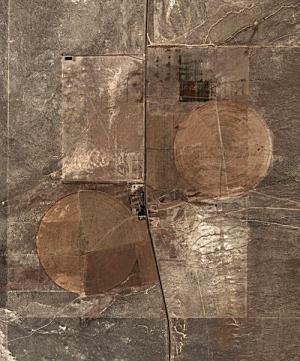
Braque in Utah
Google Maps
Providence
Struan Gray on Landscape Forensics Twiglog
I am sure the professional image analysts are more expert than this autodidact Google gawper, but unless the NSA start offering classes in image interpretation for Everyman the fastest way to learn is to spend time comparing available imagery with how it feels to walk across the same landscape. The superficially similar stripes of drainage ditches, medieval plough marks, water meadows, and post-clearances runrig tell very different stories to the botanist, the historian and the social scientist - and to the informed photographer. A photographic response to such places is welcome of course to take a naive view, but my own preference is for photographers who pay attention to the messages written into the landscape.
Stillman Wagstaff, in a handy guide to reading the landscape written by William Cronon’s students, reinforces this point, that you should ‘toggle the scale at which you frame your attention’. It’s a lovely phrase for an important process, one which I try to keep in mind while working as a photographer immersed in the here and now. Toggling between timescales can be equally rewarding, and is as important, but that is perhaps a subject for another post....(more)
_______________________

Crow, fractured cottonwood
Raymond Meeks 1 2
via Idiotic Hat
_______________________
The Official Dictionary of Unofficial English
Grant Barrett
free pdf
Grant Barrett maintains The Lexicographer's Rules and Double-Tongued Dictionary
_______________________
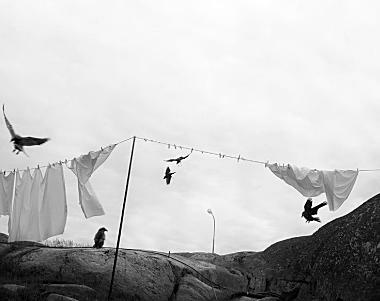
Raymond Meeks
_______________________
Looking Across the Fields and
Watching the Birds Fly
Wallace Stevens
Among the more irritating minor ideas
Of Mr. Homburg during his visits home
To Concord, at the edge of things, was this:
To think away the grass, the trees, the clouds,
Not to transform them into other things,
Is only what the sun does every day,
Until we say to ourselves that there may be
A pensive nature, a mechanical
And slightly detestable operandum, free
From man's ghost, larger and yet a little like,
Without his literature and without his gods . . .
No doubt we live beyond ourselves in air,
In an element that does not do for us,
so well, that which we do for ourselves, too big,
A thing not planned for imagery or belief,
Not one of the masculine myths we used to make,
A transparency through which the swallow weaves,
Without any form or any sense of form,
What we know in what we see, what we feel in what
We hear, what we are, beyond mystic disputation,
In the tumult of integrations out of the sky,
And what we think, a breathing like the wind,
A moving part of a motion, a discovery
Part of a discovery, a change part of a change,
A sharing of color and being part of it.
The afternoon is visibly a source,
Too wide, too irised, to be more than calm,
Too much like thinking to be less than thought,
Obscurest parent, obscurest patriarch,
A daily majesty of meditation,
That comes and goes in silences of its own.
We think, then as the sun shines or does not.
We think as wind skitters on a pond in a field
Or we put mantles on our words because
The same wind, rising and rising, makes a sound
Like the last muting of winter as it ends.
A new scholar replacing an older one reflects
A moment on this fantasia. He seeks
For a human that can be accounted for.
The spirit comes from the body of the world,
Or so Mr. Homburg thought: the body of a world
Whose blunt laws make an affectation of mind,
The mannerism of nature caught in a glass
And there become a spirit's mannerism,
A glass aswarm with things going as far as they can.
via BogBlog
_______________________

a Gathering / Sound of Summer Running
Raymond Meeks
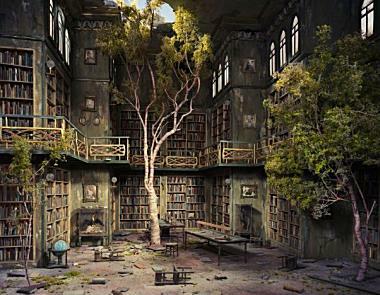
Lori Nix: Small Dangers
Zone Zero
Lori Nix photography
via gmtPlus9(-15)
_______________________
rhetorician/photographer —photographer/rhetorician
Jeff Ward
At the core, what I have practiced/taught is Rhetoric (with the capital R) which is a discipline that seems to lack any specificity or exclusivity within academic departments. It wanders, passing in and out of fashion without ever really disappearing or finding a home—labeled as techné, not epistemé. Thus the containers are filled with it, e.g. communication uses rhetoric, but is not necessarily rhetoric; most if not all writing deploys rhetorical methods, but is not strictly speaking rhetoric. It is confusing to anyone outside the problem—why not call it communication, or writing? Well, because it’s different—but what is it? The modern trend is simply to pluralize the practices as rhetorics as if that resolved the definition.
Surrendering the element of teaching writing (or composition, if you prefer), what remains is my research agenda—which I have tried to place inside the container of “visual rhetorics” with little success. The fundamental problem with this, simply swept under the rug for the last several years, is the stature of visual images as propositions. The propositional nature of images, hotly contested for a time, is simply assumed without proof and endless interpretations are being spun from those propositions. But the assumption bothers me. Although I’ve made the claim myself for photographs—each photograph includes an implied verb “to be” making it implicitly a proposition that the subject “is”—I am no longer so sure that this is a sufficient explanation....(more)
_______________________
"I love the world; I want more than the world,
Or after-image of the inner eye."
-
Theodore Roethke, "The Dying Man, Part 4, The Exalting"
.....................................................
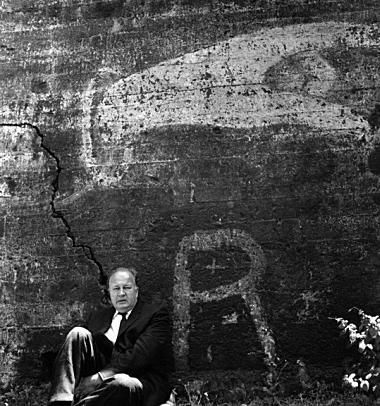
Theodore Roethke
(May 25, 1908 - August 1, 1963)
photo by Imogen Cunningham, 1959
.....................................................
The Far Field
Theodore Roethke
I
I dream of journeys repeatedly:
Of flying like a bat deep into a narrowing tunnel
Of driving alone, without luggage, out a long peninsula,
The road lined with snow-laden second growth,
A fine dry snow ticking the windshield,
Alternate snow and sleet, no on-coming traffic,
And no lights behind, in the blurred side-mirror,
The road changing from glazed tarface to a rubble of stone,
Ending at last in a hopeless sand-rut,
Where the car stalls,
Churning in a snowdrift
Until the headlights darken.
(....)
IV
The lost self changes,
Turning toward the sea,
A sea-shape turning around, --
An old man with his feet before the fire,
In robes of green, in garments of adieu.
A man faced with his own immensity
Wakes all the waves, all their loose wandering fire.
The murmur of the absolute, the why
Of being born falls on his naked ears.
His spirit moves like monumental wind
That gentles on a sunny blue plateau.
He is the end of things, the final man.
All finite things reveal infinitude:
The mountain with its singular bright shade
Like the blue shine on freshly frozen snow,
The after-light upon ice-burdened pines;
Odor of basswood on a mountain-slope,
A scent beloved of bees;
Silence of water above a sunken tree :
The pure serene of memory in one man, --
A ripple widening from a single stone
Winding around the waters of the world.
_______________________
The "Inversions" of Intentionality in Levinas and the Later Heidegger
Adam Konopka
PhaenEx, Vol 4, No 1 (2009)
Abstract
This essay brings together the inversion of intentionality in Levinas and the later Heidegger. In light of the later Heidegger’s traversal of the intentional horizon through the articulation of the withdrawal of Ereignis, it argues that the earlier Levinasian critique of the understanding proper to Heideggerian ontology is assuaged. In both Levinas and the post-Kehre Heidegger, Husserlian intentionality is expanded beyond the so called representational features that were criticized by both post-Husserlian figures.
_______________________
Why Goldman Sachs Is the Greediest and Most Dastardly of the Wall Street Pigs
Jim Hightower
.....................................................
(or reason 2, 998 why what the Obama administration is doing is not evidence of socialism but rather evidence of desperate measures to save a dying, greedy capitalism. We could call it late finance capitalism, financial monopoly capitalism, debt capitalism, or, something with a history: Mafioso Capitalism. It's what we called the Russian form that emerged in the shock treatment of privatization as everything public was expropriated. Our version is of course much more extreme and advanced--makes you almost proud to be an American--because it's rooted in expropriating not just current public funds, but private savings (the exsanguination of all savings funds, funds themselves that were part of the buy off of the middle class). So, it's not the return of Mafioso Capitalism, but it's public face--they don't even have to hide it anymore.)
-
Jodi Dean
_______________________
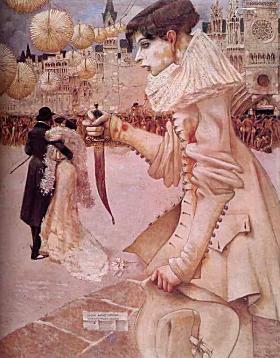
Pierrot s'en va
Gustave Adolphe Mossa
1906
_______________________
How America discarded its moral compass
Rafe Colburn
rc3
... nearly eight years later, people have been conditioned to believe that the things that we were taught make America great are outmoded concepts. Or perhaps more accurately, that we should still believe in those things and do our best to ignore the fact that they were abandoned long ago.
When we elected Barack Obama, I believed he would be a champion for the Constitution. He has not been. And what I worry about is that it was foolish to hope for a champion for the Constitution. Any such person faces a tidal wave of opposition from people who have accepted the devaluation of American ideals by the Bush administration and its defenders.
It’s only now that I’m really seeing the degree to which the things that I really do cherish about America have been debased. Everybody knows that the government has abandoned the values of the Constitution and Declaration of Independence when it was expedient over the years, but it’s only in recent times that we see such widespread belief that it’s not even wrong to do so....(more)
via dangerousmeta
_______________________
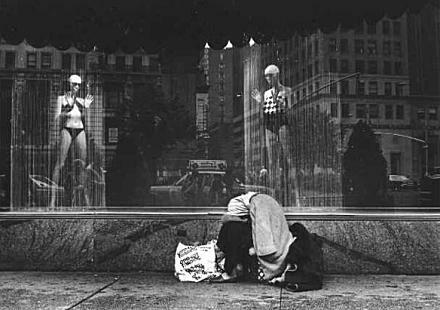
Ann Marie Rousseau
_______________________
Silent Voices
Gavin Keeney
Erodiade
When the mannequins
And advertisements
Speak of things,
When the still voices
And silent images
Say more than any
Living person,
There is something
Profoundly amiss.
When the shop windows
Express "desire for desire",
When the leggy lasses
Silently scream,
When the smiling faces
Portend no guilt,
The time of the time
That ends time arrives.
(....)
Astonishing truths
Emerge from lies,
Bury themselves
In graves that glisten --
The image(s) of love
Or lost times,
The future of things
Almost spent.
What we know
We know without words,
Yet words matter
Nonetheless --
And to make all
Silent things speak
We belabor the labor
Of love's impasse.
...(more)
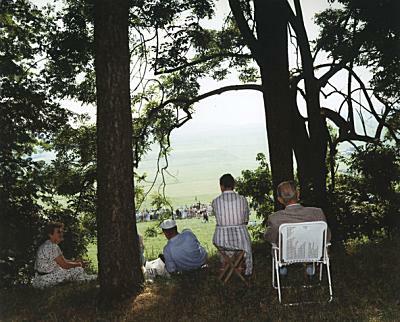
Karin Apollonia Müller
_______________________
Richard Seymour Interview
Mark Thwaite
ReadySteadyBook
MT: Socialist classics: are you a Ragged Trousered fan, an Upton Sinclair fan? Is it Wilde's The Soul of Man that moves and inspires you or some other fusty old tome I won't have heard of?
RS: I love Wilde, and the essay you mention was probably the first socialist text I ever read, although there are moments when the egotistical sublime degenerates into egotistical absurdity. I could be wrong, but I think it was here that Wilde first refashioned Christ in his own image, a dirty trick that he would repeat in De Profundis just to show how little prison had altered him. Christopher Hitchens has argued, probably correctly, that the heroic individualism and distrust of the mob in Wilde's socialism contains a coded plea for the right to live as a sexual outlaw. This is a fuck sight better than most excuses for megalomania. But I read The Soul of Man during that low, dishonest decade in which the Left was largely capitulating to neoliberalism, and in which New Labour was reviving every discredited form of bourgeois cant. I read that it was finer to steal than to beg. I read that disobedience was man's original virtue. I read that one is shocked, not by the crimes of the wicked, but by the punishments inflicted by the virtuous. I read that the rich need to be liberated from their property, for their own good. I read all that and compared it to the farting balls that the ever aphoristic Tony Blair came out with - rights and responsibilities, fairness not favours, tough on crime, tough on the causes of crime - and was reminded that behind every political failure is a literary failure. While I'm on the subject of Wilde, why isn't it more widely known that the highest achievement in socialist literature to date is The Importance of Being Earnest? To think that bourgeois audiences to this day can watch a Miramaxised version of the play, and not notice a vicious attack on their own proprietorial obsessions, their class bigotry, and the narrow self-interest embodied in the values that they claim are universal and enlightened, is a real shame. Someone should point it out to them. Let them go and watch Jimmy Carr, and keep their grasping philistine hands off Wilde....(more)
Richard maintains Lenin's Tomb
_______________________
The Importance of Reading in Earnest
Michael Dirda reviews
Built Of Books: How Reading Defined the Life of Oscar Wilde
by Thomas Wright
_______________________
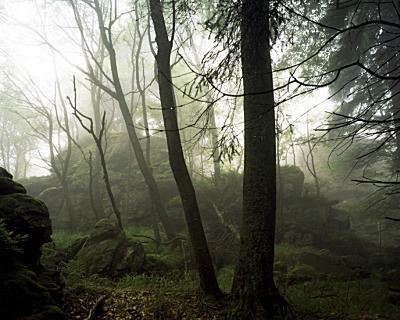 Wald
Astrid Korntheuer
Galerie Poller
Astrid Korntheuer
_______________________
Shampoo Issue Thirty-five
Poems from Germany
(in German with English Translations)
Guest Editors, Ron Winkler & Christian Lux
Four Poems
Ron Winkler
(with translations by JD Schneider)
worldview, to-go
forest is a pleasant way to agglutinate.
the trees, for instance, branch off perfectly
as a rule and seem nonetheless natural.
occasionally something will twitch between twigs.
in most cases an object or a form
of idyllic information. a winged space
with potential for extensive correctness.
I’d gladly burn you a copy.
_______________________
the art of projection
Roger Gathman
Limited Inc
"Art of Projection (Projektionskunst) – the exhibition of a proportional extended visible image, which with the help of a magic lantern or of recent projection instruments is thrown as the magnification of certain objects on a white surface" - Meyer’s Conversation Lexicon of 1908
“We get behind the demons, as it were, when we recognize them as projections of hostile feelings, which the survivors cherish against the dead.”
“The process completes itself rather through a particular psychic mechanism, that we are used to calling “projection” in psychoanalysis. The hostility, of which one knows nothing and wants to know nothing, has been thrown out of the inner sphere of perceptions [inneren Wharnehmung] into the outer world, by which one releases its from one’s own person and shoves it off on another person. Not we, the survivors, are glad that we are free of the dead one; no, we mourn him, but he has, curiously enough, become an evil demon, to whom our bad luck is pleasing, and who seeks to bring us into the realm of death. The survivors must now defend themselves against the evil fiend…” – Freud (my translation)
Oh the monsters! Under the opera. Under the pornographic novel. Under the constitutions. And under the monsters, the great grind of life in the old order, on the great estates – taxes and labor duties without end in Hungary, Moldavia, Wallachia, Poland… Slavery in Santo Domingo., famine in Bengal…
Freud takes the term from Bleuler, seizes it in a leonine pounce. For here, on the surface, in the shimmer of everyday life of verbal slips, infantile dirty jokes, the herky jerky motion of trams, office politics and thick, thick drapes, here it is that you find the denials, the “I hate to say this”, the “I don’t mean to criticize” – the I don’t mean in general. The demiurge unconscious stirs. Is it awake or asleep?
For Freud, the demons are a projection-creation, and projection itself is the expression of ambivalence. Here, of course, everything seems clear. Locke’s blank sheet of the mind – that white surface - has now been extruded – a screen - as part of a technical process in which images are thrown against it and exaggerated in size. And if we were living in a world that was simply determined, this would suffice. But we are, always, living in a world that has been overdetermined....(more)
_______________________
from
Two L tt s fo Lo d uth fo d
Cliff Fell
Beauty in a ruin,
or in a worn-out holey boot—
there are form and disorder in both, my Lord—
as in the laws of thermodynamics, let’s say, energy shifts
from thing to thing,
as a ghost might slip away—though:
in any process, the total energy of the universe remains at large
and disintegrates, becomes th shap -chang r
that re-forms itself in another turn of the wheel
as in these letters for you, my Lord,
I see your shade slip away again,
things shift, the poem completes its circle—
wh r in th first l tt r falls from th lin again
losing its plac as th l av s in autumn
will flutt r down from th willows of your childhood riv r
and slip through th airy atoms of th simpl chap l,
th villag susp nd d in cold moonlight
and th first wint r frost falling in str ts and all ys
and in th f ost falling
th oth l tt ’s lost, my Lo d,
lost and uns n
it adiat s th ough th mpty xpanding spac s
of th ndl ss univ s
out th ough th v ss l of n gi s—
of all that is and v was
and v t i d to b
—and all that always wants to b —
and n v to b gon —
my Lo d.
...(more)
Best New Zealand Poems 2008via The Page
_______________________
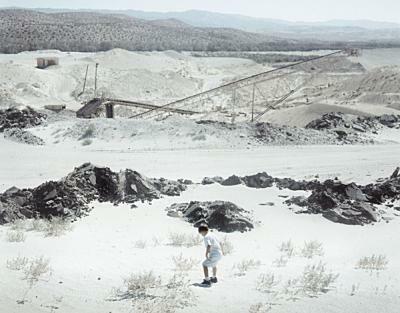
testing the ground
angels in fall
Karin Apollonia Müller
_______________________
Suicide with Squirtgun in Happy Valley
Tom Clark
Like the departure of the calved sections of a glacier into the surrounding ice, a sound disengages itself from the others, and the music stops. Day is done for Daffy Duck and Beethoven. The Kreutzer Sonata echoes through the Germanic trees of suburban Appalachia. Out come the Super Soakers. Works of art collude with the apparition of evening. Laocoon and an opossum glide upon pools of reflected light that gather upon the face of the ponds that in six moons will commingle to form the Happy Valley Ice Rink.
While apparition is the instant of illumination and of being touched by something, recording and preserving it is another trick entirely: turning this timeless moment into an aesthetic instant, which is something that has duration. This is no easy task, like trying to keep a firefly's glow in a bottle without the firefly. Through the long sleeping summer nights Happy Valley is ablaze with submerged dreams of such substitutive creations. ...(more)
_______________________
On Edge - Karin Apollonia Müller
photo book reviewed by Tim Atherton
muse-ings
The book presents us with a very contemporary sublime - not Turner's or Cozens' sublime of the awe-full, unknown Alps - but a sublime constructed of our own dreamlike fantasies of "civilization" projected onto a landscape which constantly resists our imposition....(more)
_______________________
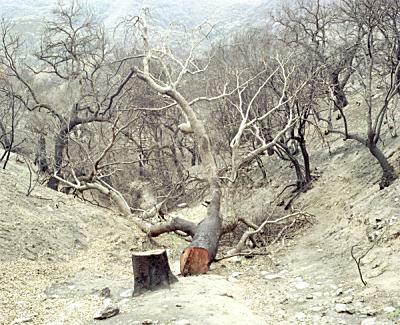
placerita
on edge Karin Apollonia Müller

St. Jerome in His Study
1514
Albrecht Dürer
b. May 21, 1471
_______________________
Re-inventing the book:
on the papernet, pod and the unbook
Teemu Manninen
Books from Finland
Sometimes I like to imagine that the papernet could represent a return to pre-print ideas of written communication, where important texts were compiled into 'commonplace books', or personal, annotated anthologies. They were singular objects made by their users to fit their personal needs. Text and authorship were malleable, pliant, and much more organic than in our time. What if the poetry books of the future were like that: 'paper ipods', or anthologies that readers could themselves compile and print?
Sometimes I'm simply reminded of the aura of singularity and originality surrounding authorial manuscripts as artefacts, something Walter Benjamin, one of the most important literary critics and philosophers of the early twentieth century, argued art lost when the age of mechanical reproduction began - but the manuscripts, I think, still retain that aura. Perhaps the unbook could be a way to let the printed book share some of the hand-written aura of manuscripts?
We must constantly invent new containers for books to burst out of, because they exceed their material form: books are never finished. And that's a good thing for us readers....(more)
_______________________
For the first time, there are more p.o.d. titles than traditonally printed books
Dennis Johnson
MOBYLIVES
According to book industry statisticians Bowker, says Jim Milliot in a Publishers Weekly report, “The number of new and revised titles produced by traditional production methods fell 3% in 2008, to 275,232, but the number of on-demand and short run titles soared 132%, to 285,394.”
In other words, for the first time, “the number of on-demand titles topped those of traditional books.” In fact, taken altogether, book production was up a whopping 38% to 560,626 titles....(more)
_______________________

Maud Muller
wearing headphones
1923 via dirty beloved
_______________________
On the Pragmatics of Communication
Jurgen Habermas
scribd
via Continental Philosophy
_______________________
The evolutionary argument for Dr. Seuss
Laura Miller reviews On the Origin of Stories by Brian Boyd
The latest and most intriguing effort to understand fiction is often called Darwinian literary criticism, although Brian Boyd, an English professor at the University of Auckland in New Zealand and the author of "On the Origin of Stories," a new book offering an overview and defense of the field, prefers the term "evocriticism." As Boyd points out, the process of natural selection is supposed to gradually weed out any traits in a species that don't contribute to its survival and its ability to pass on its genes to offspring who will do the same. The ability to use stories to communicate accurate information about the real world has some obvious usefulness in this department, but what possible need could be served by made-up yarns about impossible things like talking animals and flying carpets?(....)
"On the Origin of Stories" is at least partly written to refute Theory, the dominant trend in late-20th-century academic literary criticism. Theory is deeply invested in the idea that human identities are entirely "constructed" by the cultures people grow up in, that we are born blank slates with no innate traits. A disciple of such evolutionary psychology evangelists as Steven Pinker and Denis Dutton, Boyd has the enthusiasm of a convert, and he shares his gurus' propensity for overstating their case as well as exaggerating the strength and recalcitrance of the other side. A hardcore constructionist camp does still persist in academia, but it's such a tiny and marginal element in the culture at large, that evolutionary psychologists come across as disingenuous when they insist on portraying themselves as an outnumbered, ragtag band of embattled crusaders....(more)
via 3quarksdaily
_______________________

The Knight, Death, and The Devil
Albrecht Dürer
1513-14
_______________________
Drugged and Dangerous
U.S. Military: Heavily Armed and Medicated
Melody Petersen
In deploying an all-volunteer army to fight two ongoing wars, in Iraq and Afghanistan, the Pentagon has increasingly relied on prescription drugs to keep its warriors on the front lines. In recent years, the number of military prescriptions for antidepressants, sleeping pills, and painkillers has risen as soldiers come home with battered bodies and troubled minds. And many of those service members are then sent back to war theaters in distant lands with bottles of medication to fortify them.
According to data from a U. S. Army mental-health survey released last year, about 12 percent of soldiers in Iraq and 15 percent of those in Afghanistan reported taking antidepressants, anti-anxiety medications, or sleeping pills. Prescriptions for painkillers have also skyrocketed. Data from the Department of Defense last fall showed that as of September 2007, prescriptions for narcotics for active-duty troops had risen to almost 50,000 a month, compared with about 33,000 a month in October 2003, not long after the Iraq war began.
In other words, thousands of American fighters armed with the latest killing technology are taking prescription drugs that the Federal Aviation Administration considers too dangerous for commercial pilots....(more)
_______________________
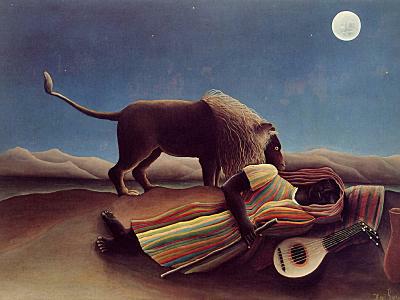
The Sleeping Gypsy
1897
Henri Rousseau
b. May 21, 1844
_______________________
From the book to the book: an Edmond Jabès reader
Translated by Rosmarie Waldrop
google books
from
The Pact of Spring
Edmond Jabès
translated by Keith Waldrop
Words have worked their
way into mineshafts but have
lost my voice Silence capsized
inkwell The pen is the derelict
My two suns full-formed rivers
The sea is above the trees
Memory of leaves the hours
fête their flowers Sleep is
transparent fruit Night is
culled from the branches Tomorrow
has no shadow Our legend is
secret So wastes away
the dawn when canceled words
speak to those who never spoke
elect nothingness a bloodstain
Crumpled page pallid hand
clenched Leavetaking is limitless
The universe lives off oblivion stages
of stars Man and nature
share in kind and in kin
Thirst is of the earth Soft sheltering
flesh the very stones are
dreams To a hundred other evidences
the crystalline support of springs stolen
faces We no longer know where
we are to where we radiate
......
_______________________
 View of the Fortifications
Henri Rousseau
1896
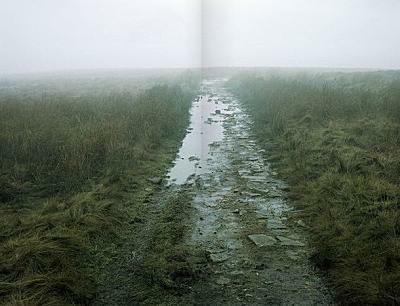
The Changing Land
Charlie Meecham
purpose 7
printemps / spring 2008
purpose
_______________________
Walk With Me
Annie Finch
Walk with me just a while, body of sunlight,
body of grass, surface of trees,
head bending to the earth we have tasted,
body of death, surface of leaves.
Sinking hooves in the mud by the river,
root of the live earth, live through my body.
Sinking body, walk in me now.
.....................................................
Facebook & the New Poetry Community
Annie Finch
harriet
What does it mean that, for the first time in the history of poetry, a poet can maintain anything like awareness, let alone a sense of connection, to such a gigantic number of other poets? Not only do we have instant access to reading their work online; we can also develop some kind of social awareness of them, whether through meeting them at conferences and readings or simply through browsing facebook updates and youtube clips.
It’s easy to think of all this potential knowledge as at best a handy tool, or a fun if frivolous toy– and at worst, in grumpy moods, as a consumer of time and energy for no particular reason, or even to fear that the tradeoff in lack of depth and intensity of connection, compared to, say, how well Keats knew his small handful of poet-friends, is detrimental to useful interaction and poetic growth.
But I don’t believe it. As I clicked on the names and faces of poets and thought about what I know of each one’s work and life and aesthetic goals, prizewinners and students and even the deceased (hi Craig!), perfpos and langpos and newfos, all merrily juxtaposed by the great equalizer of the alphabet, I was moved. Humbled. Awed. This is something new in the life of poetry, and I’m excited to be part of it and to see where it may take us....(more) _______________________

Charlie Meecham
_______________________
Alices in Wonderland:
Thoughts on Narrative Discovery, Getting Lost, and Where to Find the Rabbit Hole
Jon Anderson
The Spark of Accident
The changes to journalism in the digital age involve not just questions of economic compensation, technological innovation regarding new methods of delivery as well as new forms of presentation, and the redefinition of our practice as newsgatherers (will we cull still images from life or a video stream, will we combine the offices of writer and photographer? etc). They also impose upon us the obligation to review the role that narrative plays in our endeavors and decide on what sort of narratives serve our purposes best, how new media can shape those narratives, and what our narrative traditions have to offer us, both in terms of orienting us as well as providing clues to the type of content we wish to purvey. While we ponder the brave new world of clicking and linking, we also have to reflect on first principles, so it behooves us to consider the basic functions of narrative in general. It turns out there are important reasons for doing so.
Since the advent of new social theory in the late 50s and onwards, which also spilled over into literary theory as a result of the focus on language and semiotics, theorists and critics have shifted focus from traditional social determinants (economic and political factors) to the ideological function of narrative both in its capacity to foment and confirm key social values and also its use as a kind of social glue, reconciling contradictions that might otherwise tear a society apart (of course, what theorists have tended to overlook is the capacity of avant garde narratives to create new values. More on this later.)...(more)
Grub Street: Thoughts on 21st Century Journalism
Jon Anderson
_______________________
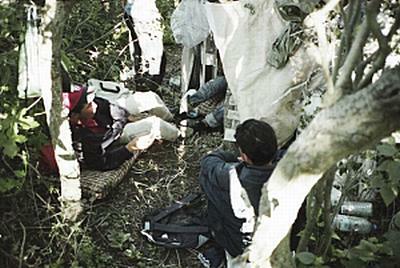 Immigration chapitre 2 : Calais
Anthony Berthaud
_______________________
Obama’s Animal Farm: Bigger, Bloodier Wars Equal Peace and Justice
James Petras
Global Research
It is just as George Orwell described in Animal Farm: The Democratic Pigs are now pursuing the same brutal, military policies of their predecessors, the Republican Porkers, only now it is in the name of the people and peace. Orwell might paraphrase the policy of President Barack Obama, as ‘Bigger and bloodier wars equal peace and justice’.
_______________________
Unexceptional Americans:
Why We Can't See the Trees or the Forest
The Torture Memos and Historical Amnesia
Noam Chomsky
Historical amnesia is a dangerous phenomenon, not only because it undermines moral and intellectual integrity, but also because it lays the groundwork for crimes that still lie ahead. _______________________
New Writers Explore the Dark Side of Japanese Literature
Kay Ohara
Words Without Borders
Book sales are generally down in Japan, and for that matter, they’ve been down for more than a decade. Sure, you’ve heard of the rise of keitai shosetsu, novels written and read on the ubiquitous cell phones, but it’s no Kindle and no one’s getting royalties there. Excuse the pun, but it’s something you just thumb through. Yet year after year, new and talented writers take up the challenge in this tough market and some of them manage to get noticed.One of the industry's few bright spots have been the recipients of the annual Hon'ya Taisho award, given to the book booksellers want to hand-sell the most.
...(more)
_______________________
Letter For Emily Dickinson
Annie Finch
When I cut words you never may have said
into fresh patterns, pierced in place with pins,
ready to hold them down with my own thread,
they change and twist sometimes, their color spins
loose, and your spider generosity
lends them from language that will never be
free of you after all. My sampler reads,
"called back." It says, "she scribbled out these screeds."
It calls, "she left this trace, and now we start" --
in stitched directions that follow the leads
I take from you, as you take me apart.
You wrote some of your lines while baking bread,
propping a sheet of paper by the bins
of salt and flour, so if your kneading led
to words, you'd tether them as if in thin
black loops on paper. When they sang to be free,
you captured those quick birds relentlessly
and kept a slow, sure mercy in your deeds,
leaving them room to peck and hunt their seeds
in the white cages your vast iron art
had made by moving books, and lives, and creeds.
I take from you as you take me apart.
Selected Poetry of Annie Finch
Representative Poetry On-line
_______________________

Charlie Meecham
_______________________
Neither Victim Nor Executioner
Albert Camus
translation by Dwight Macdonald
We are asked to love or to hate such and such a country and such and such a people. But some of us feel too strongly our common humanity to make such a choice. Those who really love the Russian people, in gratitude for what they have never ceased to be - that world leaven which Tolstoy and Gorky speak of - do not wish for them success in power-politics, but rather want to spare them, after the ordeals of the past, a new and even more terrible bloodletting. So, too with the American people, and with the peoples of unhappy Europe. This is the kind of elementary truth we are liable to forget amidst the furious passions of our time.
Yes, it is fear and silence and the spiritual isolation they cause that must be fought today. And it is sociability ('le dialogue') the universal intercommunication of men that must be defended. Slavery, injustice and lies destroy this intercourse and forbid this sociability; and so we must reject them. But these evils are today the very stuff of History, so that many consider them necessary evils. It is true that we cannot 'escape History', since we are in it up to our necks. But one may propose to fight within History to preserve from History that part of man which is not its proper province. That is all I have to say here. The 'point' of this article may be summed up as follows:
Modern nations are driven by powerful forces along the roads of power and domination. I will not say that these forces should be furthered or that they should be obstructed. They hardly need our help and, for the moment, they laugh at attempts to hinder them. They will then, continue. But I will ask only this simple question: what if these forces wind up in a dead end, what if that logic of History on which so many now rely turns out to be a will o' the wisp ? What if, despite two or three world wars, despite the sacrifice of several generations and a whole system of values, our grandchildren - supposing they survive - find themselves no closer to a world society? It may well be that the survivors of such an experience will be too weak to understand their own sufferings. Since these forces are working themselves out and since it is inevitable that they continue to do so, there is no reason why some of us should not take on the job of keeping alive, through the apocalyptic historical vista that stretches before us, a modest thoughtfulness which, without pretending to solve everything, will constantly be prepared to give some human meaning to everyday life. The essential thing is that people should carefully weigh the price they must pay.
To conclude: all I ask is that, in the midst of a murderous world, we agree to reflect on murder and to make a choice. After that, we can distinguish those who accept the consequences of being murderers themselves or the accomplices of murderers, and those who refuse to do so with all their force and being. Since this terrible dividing line does actually exist, it will be a gain if it be clearly marked. Over the expanse of five continents throughout the coming years an endless struggle is going to be pursued between violence and friendly persuasion, a struggle in which, granted, the former has a thousand times the chances of success than that of the latter. But I have always held that, if he who bases his hopes on human nature is a fool, he who gives up in the face of circumstances is a coward. And henceforth, the only honourable course will be to stake everything on a formidable gamble: that words are more powerful than munitions....(more)
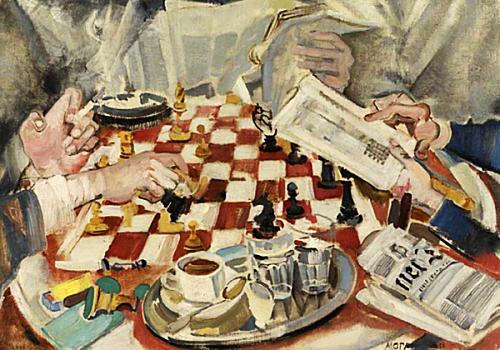 Max Oppenheimer
1885-1954
_______________________
Bad Collateral
James Howard Kunstler
The bizarre spectacle being played out right now by President Obama and his team only adds layers of mystery and mystification to this big question. On the one hand, you have Mr. Obama giving a graceful, thoughtful speech on a very difficult issue (abortion) at a very tough venue (the country's leading Catholic university), and presenting an excellent case for common ground. It was a bold deed, unshirking, even brave considering what have come to be the standard modes of pander or evasion in presidential politics. I suspect that Mr. Obama did it as much to demonstrate his willingness to face tough questions in general as to address abortion per se.
All this is to say why it is so dispiriting to see Mr. Obama's White House mount a campaign to sustain the unsustainable in the economic realm. Everything they've done for four months involving money management and enterprise policy -- from backstopping hopeless banks, to gaming the bankruptcies of the big car companies, to the bungled efforts to prop up artificially-high house prices -- amounts to a gigantic exercise in futility. Worse, it gives off odors of dishonesty or stupidity, since the ominous tendings of our system are so starkly self-evident....(more)
_______________________
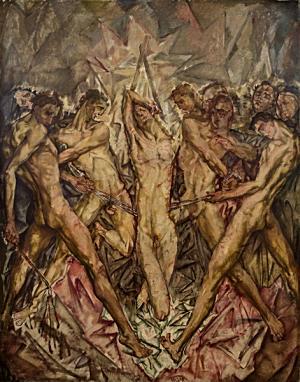
Max Oppenheimer
_______________________
Bush’s Intellectual Torturers
Tzvetan Todorov
The top-secret memoranda released by the Obama administration concerning torture practices in CIA prisons shed new light on a fundamental question: how is it that people acting in the name of the United States government could so easily accept the idea of torturing the detainees in their charge?
The newly published documents do not disclose the very facts of torture, which were already well known by whomever wanted to know them. But they do reveal a great deal of information about how the torture sessions unfolded and how the agents involved perceived them.
What is most striking is the discovery of niggling little rules, outlined in CIA manuals and co-opted by the government’s legal executives. One would have thought that torture was the result of blunders or unintentional excesses committed on the spur of the moment. On the contrary, these memos make clear that torture was a tactic formulated in minute detail. (....)
If we are to understand why some Americans accepted administering torture so easily, we need not look for some ancestral hatred or fear of Muslims and Arabs. No, the cause is far worse. The memos that the Obama administration has disclosed teach us that anyone who complies with seemingly noble principles dictated by a “sense of duty” or by the necessary “defense of the homeland,” or who is urged by a basic fear for his own life and welfare, or the lives and welfare of his kin, can become a torturer....(more)
_______________________
The 13 people who made torture possible
_______________________
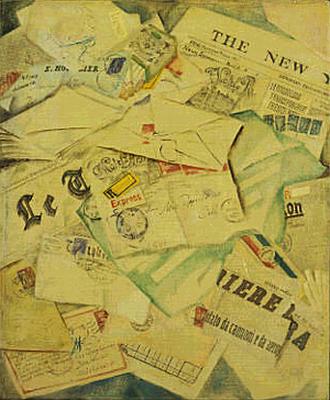 Max Oppenheimer
_______________________
Poems from Lust ('Desire', Söderströms, 2008)
Claes Andersson
translated by David McDuff and David Hackston
Use it or lose it
Take the muscles in your arms and legs
Take the laughter muscles and the crying muscles
Take the stomach muscles
One day they are gone
Or take thoughts
If you stop thinking you will soon have none left
Or teeth if you stop chewing
The same is true of the emotions
If you stop feeling they will waste away and wither
Until one day they are gone
First you are unfeeling then cold
then insensible
One day you stand there shouting: Heil who?
Friendship too wastes away if you do not
use it
Not to speak of hatred bitterness
jealousy and envy
You will end up being very lonely
What will you do then without your old
favourites?
With desire and sex it is the same
Unused they will shrink and wither away
If you don’t use your love
it will die
It becomes real in action which is its ex libris in our hearts
Unemployed it disappears forever
What we don’t use uses us up, we early used-up ones
...(more)
Desire versus apathyBror Rönnholm on the poetry of Claes Andersson .....................................................
Books from Finland
_______________________
Pirate Philosophy
Culture Machine
Tenth Anniversary Issue
edited by Gary Hall
Open Humanities Press
Pirate Philosophy (Version 1.0):
Open Access, Open Editing, Free Content, Free/Libre/Open Media [PDF]
Gary Hall
... the aim here is to raise questions around issues of authorship, the proper name, the signature, attribution, publication, citation, accreditation, fair use, copyright, intellectual property and content creation. How do you know I have not already done this? And what if I have? What if I have already placed the first version of this opening essay to Culture Machine’s ‘Pirate Philosophy’ issue on a peer-to-peer network, and made it available for anyone not only to read, download, copy and share without charge, but also to remix, reformat, reversion, reinvent and reuse as ‘Pirate Philosophy 2.0’ say? What if I have destroyed the original version of this text, so that the only version I can present to you here and now is a pirate version that has been authored and edited distributively - what we might think of as version 3.0? How does that affect your ideas of the academic author? Of scholarly writing and publishing? Of peer review? Of the academic journal?
New Cultural Studies: The Liquid Theory Reader
Gary Hall and Clare Birchall
Crashing The Spectacle:
A Forgotten History Of Digital Sampling, Infringement, Copyright Liberation And The End Of Recorded Music
Kembrew McLeod _______________________
The Antiquary's Shoebox
A Selection of Articles from Various Journals in the Fields of Classics and Archaeology
Bill Thayer
via Tom Matrullo
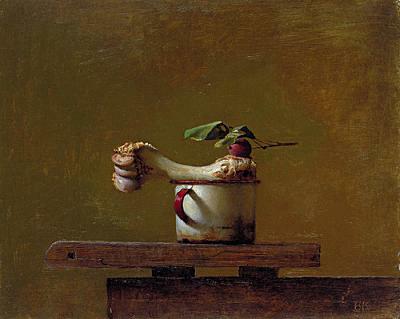
Bone, Cup and Crab Apple
Bruce Kurland via Ordinary finds
_______________________
“The path is writing and writing is a body and a body is bodies (the grove of trees). Just as meaning appears beyond writing, as though it were the destination, the end of the road (an end that ceases to be an end the moment we arrive there, a meaning that vanishes the moment we state it), so the body first appears to our eye as a perfect totality, and yet it too proves to be intangible: the body is always somewhere beyond the body. On touching it, it divides itself (like a text) into portions that are momentary sensations: a sensation that is a perception of a thigh, an earlobe, a nipple, a fingernail, a warm patch of groin, the hollow in the throat like the beginning of a twilight. The body that we embrace is a river of metamorphoses, a continual division, a flowing of visions, a quartered body whose pieces scatter, disperse, come back together again with the intensity of a flash of lightning hurtling toward a white black white fixity. A fixity that is destroyed in another black white black flash; the body is the place marking the disappearance of the body. Reconcilitation with the body culminates in the annihilation of the body (the meaning). Every body is a language that vanishes at the moment of absolute plenitude; on reaching the state of incandescence, every language reveals itself to be an unintelligible body. The word is a disincarnation of the world in search of its meaning; and an incarnation: a destruction of meaning, a return to the body. Poetry is corporeal: the reverse of names.”
- Octavio Paz, The Monkey Grammarian, Chapter 26
courtesy of Corporeal and Hokai Sobol
_______________________
The disembodied book
Jürgen Neffe
Translation: lp
sign and sight
Perhaps one day in the future, we or our children will go one step further to save reading and writing, and make all texts and content free for download. Free reading as part of the fundamental right to education – and as a success formula for all modern knowledge-based societies. Open Access would not be the end of the West. On the contrary.
Gutenberg's achievement was that more people owned and read more books. The same can be said of the revolution which will put his work in the museum. When the history of the 21st century is written by generations to come, the global financial meltdown will appear as nothing more than a footnote at the beginning of the post-Gutenbergian age....(more)
_______________________

bar-lock 4
Columbia Typewriter Co.
1892
Antique Typewriters
The Martin Howard Collection
via plep
_______________________
Three books on happiness
Roger Gathman
The American-Statesman
Philosophers boldly suggested that emotions might be traced both to dispositions in the body and social conditions outside of the body. Hence was born the idea that, perhaps, a better world would make us happier.
Such a notion might have been on Thomas Jefferson's mind when he made the most famous statement about happiness in history. In the Declaration of Independence, he claimed that man was endowed with an inalienable right to life, liberty and the pursuit of happiness. For the first time, a nation had founded itself on the right to a certain mood. This was, indeed, revolutionary.
More than two centuries later, America is still ardently pursuing happiness. Things have changed a bit since the Enlightenment. Happiness not a revolutionary cause anymore — it has, in fact, become a norm. Put the phrase "I'm unhappy" up on your Facebook page, and you will inevitably get dozens of comments asking "What's wrong?" For what is right — what is normal — is, supposedly, to be happy. Happiness has become not just a goal to be pursued, but the equivalent of success itself. In America, if you are unhappy, you are, by definition, unsuccessful....(more)
_______________________
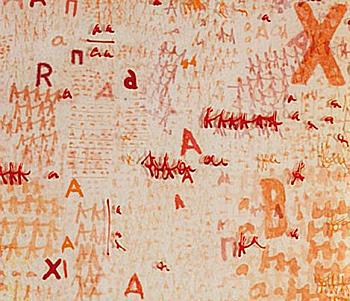 detail
Mira Schendel
Tangled Alpaphabets
Mira Schendel & León Ferrari
MoMA (New York)
via Charles Bernstein
_______________________
from: triangulating happiness
Nicholas Courage
Exquisite Corpse
3.
satori tuesdays
three bottles of champagne on a monday
afternoon; sustained shouts entraining
over the binaural beats of untunable
guitars, oral oscillations ringing from
tippled lips into transposed weekends -
popped corks and condom wrappers,
makeshift sutras for rock & roll buddhas;
early morning's half clarity. hours like
days beneath the broadway banyan, fat
psychic figs and incense sitll in unwashed
hair - the unraveled satori of the greasy
and contented, sacral flower wet on
sybaritic tongue; fruit wasps feeding at the
corners of fresh awakened eyes like the
easy tears of subtropical dictators: self-
loathing and deeply loved, magnanimous
and forever damned. the paralysis of
epiphany thrusting into brooklyn gardens
as frequencies align, building upon each
other into the enlightenment of vedic gang
covals and invincible pagan screams.
...(more)
_______________________

Institute for Plant Research
William Boyce Thompson
SCOUTING NY nycscout's photostream
_______________________
Cartographies of Silence
Adrienne Rich
1.
A conversation begins
with a lie. and each
speaker of the so-called common language feels
the ice-floe split, the drift apart
as if powerless, as if up against
a force of nature
A poem can being
with a lie. And be torn up.
A conversation has other laws
recharges itself with its own
false energy, Cannot be torn
up. Infiltrates our blood. Repeats itself.
Inscribes with its unreturning stylus
the isolation it denies.
(....)
3.
The technology of silence
The rituals, etiquette
the blurring of terms
silence not absence
of words or music or even
raw sounds
Silence can be a plan
rigorously executed
the blueprint of a life
It is a presence
it has a history a form
Do not confuse it
with any kind of absence
...(more)
_______________________
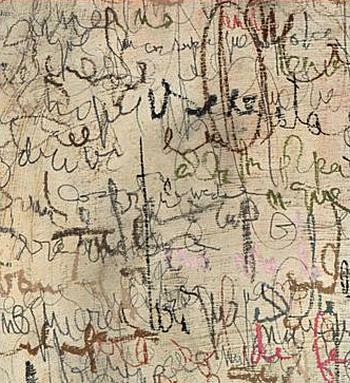 detail
León Ferrari
Tangled Alpaphabets
Mira Schendel & León Ferrari
MoMA (New York)
_______________________
Life On Venus: Europe’s Last Man
Adam Kirsch
Sebald is drawn to stories of abandonment and loss, to sites where Western civilization seems to have died out, to obsolete technologies and unrecapturable pasts. As the book goes on, he assembles so many of these tales as to become a Scheherazade of destruction. And because Sebald the wanderer almost never encounters another person, he manages to produce the eerie sense that England itself has been abandoned, that he may be the last man left to catalog its ruins. The mood of the book is beautifully captured in one of Sebald's many quotations from Sir Thomas Browne, the Renaissance polymath whose meandering, encyclopedic works are models for his own: "The shadow of night is drawn like a black veil across the earth, and since almost all creatures, from one meridian to the next, lie down after the sun has set, so . . . one might, in following the setting sun, see on our globe nothing but prone bodies, row upon row, as if leveled by the scythe of Saturn-an endless graveyard for a humanity struck by falling sickness."...(more)
_______________________
Reading With Scissors
Elizabeth Kiem
The Morning News
There was a time when I feared that if I didn’t move W.G. Sebald’s books from the bedside table, I would take scissors to them.
For months I had read him compulsively and exclusively. I wrote down half of what I read verbatim. The other half I linked to passages I had transcribed with code words like nomad, buttons, shroud, or gruesome cafeteria. Then I sorted my notes. I made outlines, flowcharts, even a storyboard. I studied Sebald like calculus. I couldn’t say what I hoped to learn.
Sebald is a tour guide for the spirit world of history, spinning battles, biographies, biology, and botany from the loose ends of his narrative. Within the scant 2,000 pages that comprise his published oeuvre are didactic elegies on the mackerel, hallucinations of the infamies of silk cultivation, whispered exposés about the desolation of Manchester, and an ode to Vitus Bering’s ship doctor. But it is not for this wealth of tangential trivia that I labored over his books. I was searching from one to the next for the seeing eye of the visions inside.(....)
... having committed myself to ownership, I resolved to acquire all of Sebald’s books. It’s been a slow process, as yet incomplete. I dislike the idea of buying them new—an action as perverse as buying a brand-new grandfather clock. And so I wait, for the chance run-in with a perfectly turned-out copy of The Rings of Saturn: one with clean margins and minimal dog-ears that nonetheless bears inarguable traces of an excavating reader. I did find it, and an equally suggestive copy of Austerlitz. As I pick them up for their second, third, and fourth reading, the previous notes are swept clear and new markers are placed in their wake. Frequently, I believe, over the very same passages, coded in the very same notes to self. They lie, all four of them along with some fellow travelers brought to print by sad demand after Sebald’s early death, on the bookshelf, bristling with yellow post-it notes like a paper stegosaurus....(more)
via BlurryYellow
|
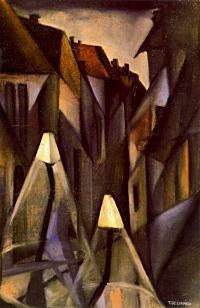
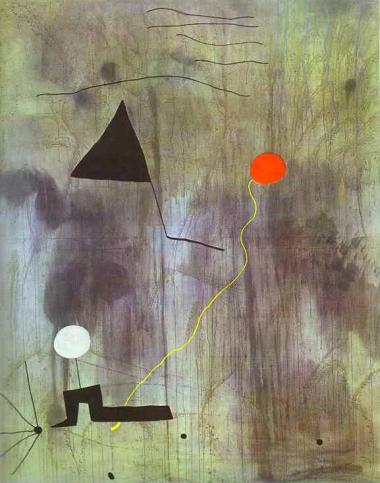
 Janus Head
Janus Head
 The Age of Briggs & Stratton
The Age of Briggs & Stratton













































